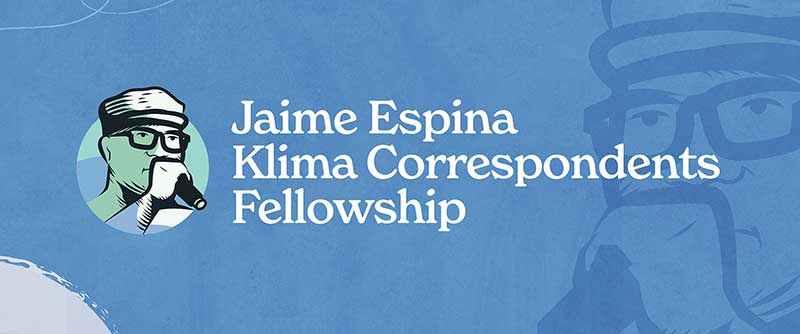
Seven teams composed of 14 journalists and editors, mostly from Luzon and Mindanao, have been chosen as the inaugural Fellows of the first Jaime Espina Klima Correspondents Fellowship which will support the production of in-depth and creative narratives focused on the country’s accelerating transition towards modern energy systems.
“This fellowship is about the energy transition. It’s really important to understand there is more in the world of energy reporting than just what is happening in the power sector. It involves development, tourism, culture, history, households, small and medium enterprises, education, and a lot more. This is our contribution to broadening the narratives of the energy transition underway,” said Renato Redentor Constantino, executive director of the Institute for Climate and Sustainable Cities (ICSC).
The fellowship, hosted by ICSC, honors the late Jose Jaime “Nonoy” Espina, a veteran reporter, fierce press freedom campaigner, and outspoken advocate of media workers’ welfare. These inaugural Fellows worked across different beats and stood out for their story proposals that focused on how important the transition to renewable energy is in the provinces and regions they report in.
“Congratulations are in order to all the Fellows selected by our distinguished panel. It’s not every day we get to put together a program for our colleagues in the media that belongs to what we consider the cutting edge of changes taking place in the country and around the world,” Constantino added.
The Fellows will take on a curated online course covering energy reporting and media safety during the first four weeks of the program. It will utilize both synchronous and asynchronous formats, which will allow Fellows to interact and benefit from the mentorship of a panel of renowned journalists, including Inday Espina Varona, Rappler’s head of regions and Nonoy’s sister; Jonathan de Santos, National Union of Journalists of the Philippines chairperson and Philstar.com editor; Dr. Diosa Labiste, community journalist and University of the Philippines’ College of Mass Communication professor, and Jade Lopez, former TV5 editor and ABS-CBN reporter. Fellows will also gain access to experts and analysts working with ICSC.
After finishing the short online course, Fellows are expected to work on and submit revised story proposals by the end of July, which will be further refined with the guidance of the panel-mentors. The Fellows are expected to begin their reporting in August while publication of their stories in their chosen news organizations is scheduled for November.
Each team of Fellows will receive a grant of PHP70,000, which covers reporting expenses, stipends, and COVID-related costs to ensure the safety of both applicants and the communities they will visit for their respective stories.
The selected Fellows and their story proposals are as follows:
Erwin Mascariñas and Ivy Marie Mangadlao (Philippine Daily Inquirer)
Story proposal: Solar power in post-Odette Dinagat and Siargao Islands
Bong Sarmiento and Carolyn Arguillas (MindaNews)
Story proposal: Solar power in off-grid areas in South Cotabato
Mavic Conde and Ronalyn Olea (Bulatlat)
Story proposal: PUV modernization and just transition in Albay
Carl Taawan and Sam Bautista (Highland Tribune)
Story proposal: BENECO’s venture in solar and hydropower in Benguet
Keith Anthony Fabro and Jee Geronimo (Rappler)
Story proposal: Solar power and basketry tradition among indigenous peoples in Palawan
Germelina Lacorte and Jeoffrey Maitem (Philippine Daily Inquirer)
Story proposal: Solar energy potential in Davao region
Raymund Villanueva and Rosemarie Alcaraz (Kodao Productions)
Story proposal: Documentary on micro-hydropower in Apayao




















